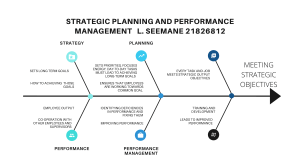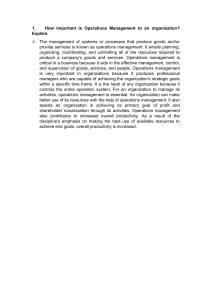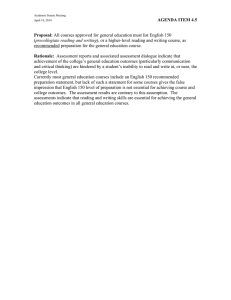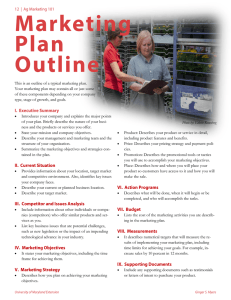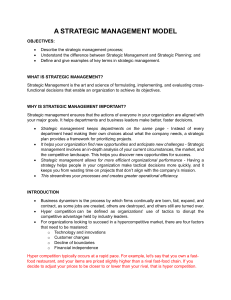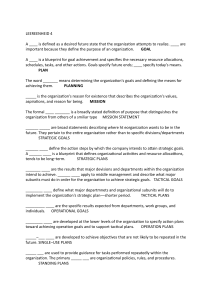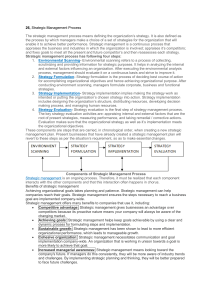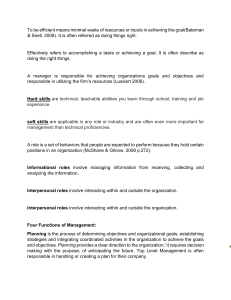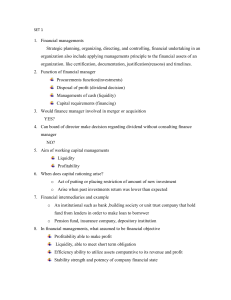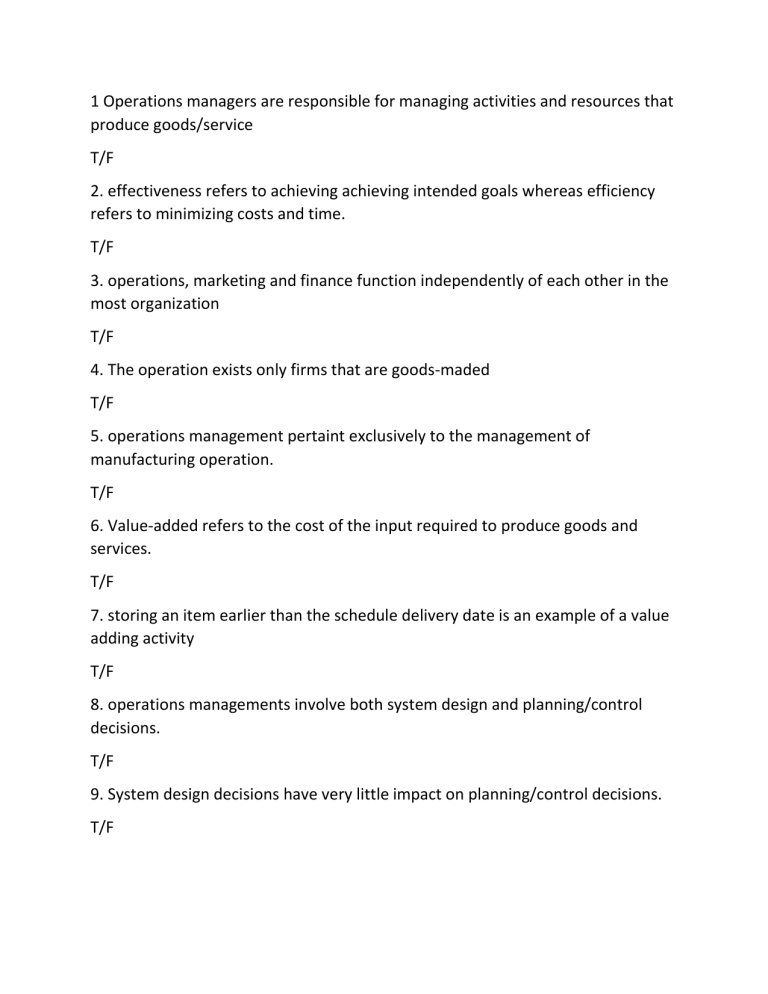
1 Operations managers are responsible for managing activities and resources that produce goods/service T/F 2. effectiveness refers to achieving achieving intended goals whereas efficiency refers to minimizing costs and time. T/F 3. operations, marketing and finance function independently of each other in the most organization T/F 4. The operation exists only firms that are goods-maded T/F 5. operations management pertaint exclusively to the management of manufacturing operation. T/F 6. Value-added refers to the cost of the input required to produce goods and services. T/F 7. storing an item earlier than the schedule delivery date is an example of a value adding activity T/F 8. operations managements involve both system design and planning/control decisions. T/F 9. System design decisions have very little impact on planning/control decisions. T/F 10. An example of an operations control decision is the choice of location. T/F 11. Scheduling jobs is a system design decisions and not a planning decisions T/F 12. Design decisions are usually strategy and long term while planning decisions are tactical and medium term. T/F 13. Managing inventory level is considered planning/control operation decision area T/F 14. Service involves a much higher degree of customer contact than the production of goods T/F 15. Service often requare a higher labor content, where as the production of goods is more capital intensive T/F
